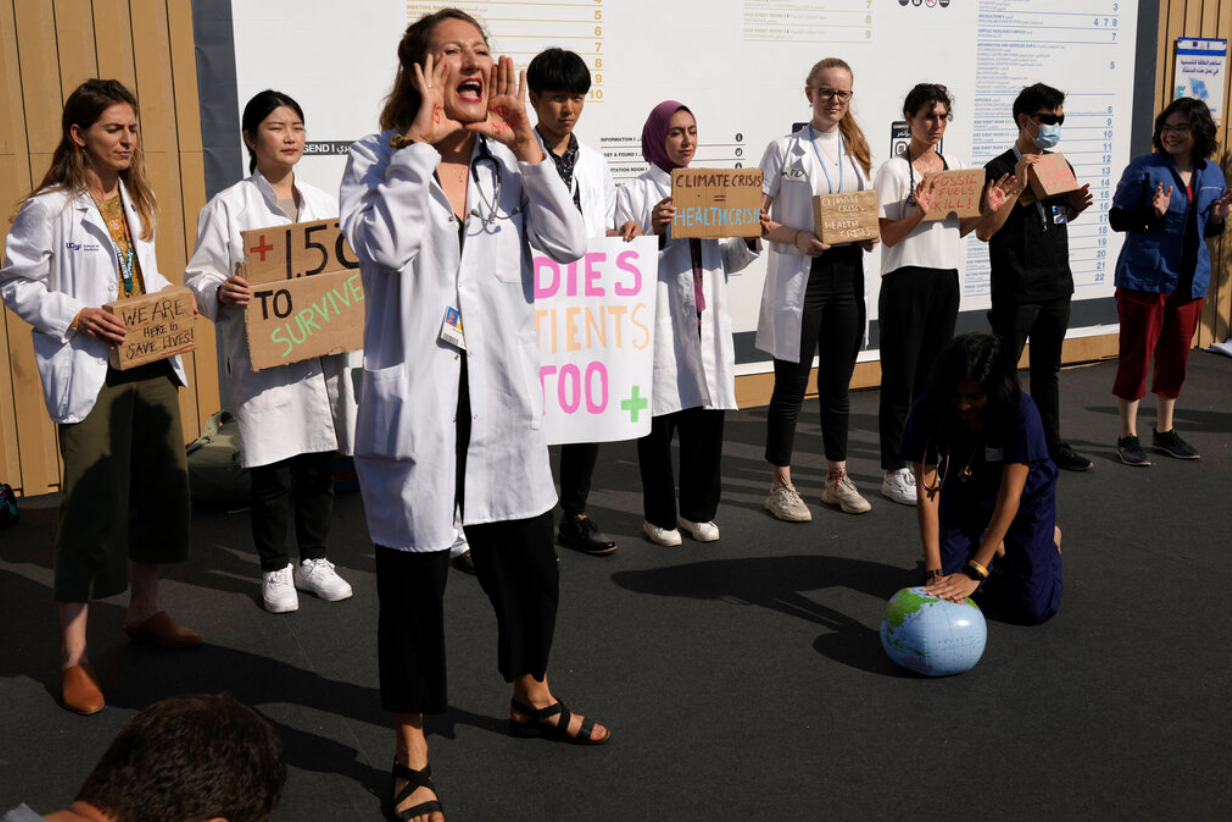Biden Speaks at COP27, Promises Action
President Biden speaks before the crowd at COP27 in Sharm El Sheikh, Egypt. Photo: Alex Brandon / AP
On Nov. 11, President Biden spoke at the annual UN Climate Change Conference in Sharm El-Sheik, Egypt, known this year as COP27, about the US’ climate commitments and upcoming environmental goals.
Addressing a mix of diplomats, activists, and business leaders from around the world, Biden took the opportunity to reaffirm the US as a leader in the fight against climate change. In a passionate tone, he declared: “[T]he United States is meeting the climate crisis with urgency and with determination. We are racing forward to do our part to avert … ‘climate hell.’”
President Biden went on to announce a sweeping series of plans and commitments on the part of the US. In particular, his Emergency Plan for Adaptation and Resilience fund — PREPARE for short — provides $150 million for various adaptation efforts across Africa, the most climate-vulnerable continent. These efforts span everything from warning systems to food security. In Egypt alone, the US and Germany have pledged to give $500 million to fast track its transition to clean energy. For his part, Biden said the US was on track to meet its emissions target — cutting greenhouse gas emissions by 52 percent — by 2030.
On the same day as Biden’s speech, the Environmental Protection Agency (EPA) announced a regulation that apparently would curb methane emissions to 87 percent below 2005 levels. This focus on methane stems from the fact that, in the short term, it stores 80 times more heat than CO2. That Friday, the UN announced the Methane Alert and Response System (MARS), designed to record “major” emissions as they happen.
Earlier in his speech, the President summarized and stressed his accomplishments on the climate, chief among which is the Inflation Reduction Act. Signed in August, the law allocates $370 billion to initiatives that would cut greenhouse gas emissions, such as clean energy and battery manufacturing. The 2021 bipartisan infrastructure law, an earlier piece of legislation, sets aside billions more for specific projects, including new electric vehicle charging stations and an upgrade to the power grid to assist in the transition to clean energy and strengthen disaster-response systems.
Furthermore, President Biden reminded the convention that upon taking office, he rejoined the Paris Agreement from 2015, under which member countries aim to limit global warming to “well below 2, preferably to 1.5 degrees Celsius” relative to pre-industrial levels. Under the terms of the agreement, the US must supply $11.4 billion to help the developing world transition to clean energy. Biden pledged that money back in 2021 and again on Friday, although Congress mustered only $1 billion for global climate development last year.
A group participates in a “1.5 to survive” protest at the site of the conference. Photo: Peter Dejong / AP
The conference came as climate change’s material effects on the developing world are ramping up. Thus, for the first time in a formal context, wealthy nations like the US had to consider the question of climate reparations, in addition to the focus of cutting emissions. The idea behind climate reparations is that wealthy nations, accounting disproportionately for greenhouse gas emissions, bear the brunt of responsibility for the climate-induced harm inflicted on developing countries, with relatively weak defense and support systems in turn.
President Biden responded to applause at multiple points throughout his speech, but not all were pleased. In particular, as he spoke, a group of Indigenous activists interrupted to protest, with one of them yelling: “President Biden says that Indigenous people have the answers, but he refuses to listen to Indigenous people.” Others are disappointed that Biden made no mention of reparations in his speech.
Even as Biden promises action, emissions continue to rise at an increasingly faster pace. As Republicans appear poised to take the House in last week’s midterms elections, it remains to be seen whether President Biden’s climate vision for America can be fully realized.


